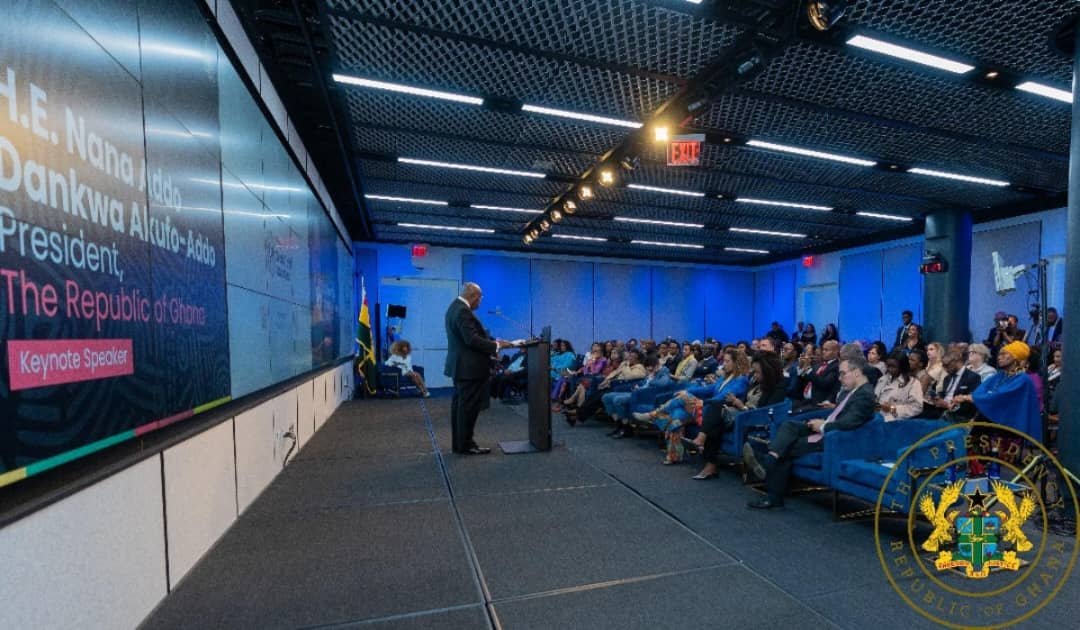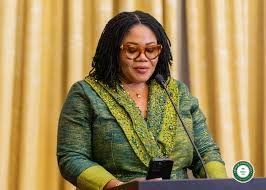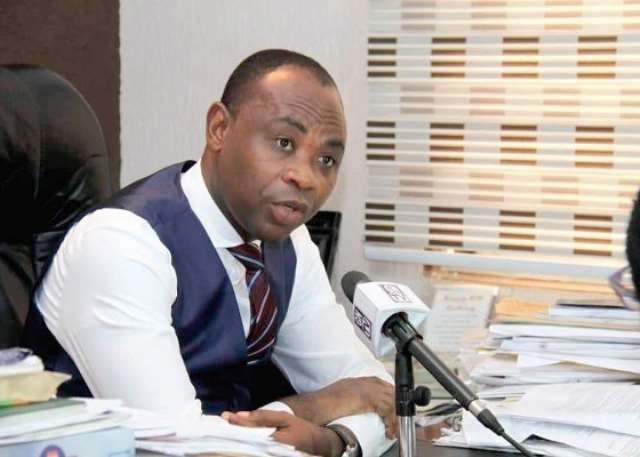News
Righting Historical Wrongs: President Akufo-Addo calls for Reparative Justice at UN Assembly”

At a significant side event during the 2024 UN General Assembly in New York, President Nana Addo Dankwa Akufo-Addo of Ghana delivered a compelling address on reparations, calling for a global reckoning with the historic injustices inflicted on people of African descent.
In his passionate speech, the President outlined the importance of reparative justice, while stressing that this moment in history is not merely about reflecting on past wrongs but about forging a path toward a just and equitable future.
“We are not convening this evening to share words, nor are we merely reflecting on history,” President Akufo-Addo began.
He said, “No, my friends, we are here to envision a new future—a future that corrects the injustices of the past and ensures that our children, and their children, are born into a world that embraces their dignity and humanity.”
In addressing the gathered dignitaries, diplomats, and representatives of African nations and the African diaspora, the President underscored the brutal legacy of slavery, colonialism, and systemic racism that continues to reverberate in the lives of people of African descent.
He emphasized that reparations are not just about compensation but about rebuilding the dignity and future of a people whose humanity was denied for centuries.
Akufo-Addo highlighted the historical examples of Haiti and the United States, where former enslaved peoples were further burdened instead of compensated.
He recounted the harrowing case of Haiti, a nation that was forced to pay reparations to France for the audacity of gaining its independence from colonial rule in 1804.
Haiti was shackled with an unjust debt of $21 billion that crippled its economy and prospects for generations.
“Haiti’s example illustrates a fundamental truth: reparations, when wrongly administered, do not serve justice. Rather, they can reinforce the very power structures that perpetuate dominion and inequality,” President Akufo-Addo asserted.
He added, “It was the enslaved who paid their former slave masters, a story that still resonates across the Global South.”
Akufo-Addo’s address also recounted the injustices perpetrated in the United States and the United Kingdom, where compensation for the abolition of slavery was perversely awarded to the slave masters, rather than to those who had endured years of forced labor and inhumane treatment.
In the United States, $300 was paid to slave owners for each enslaved person they lost, while the enslaved were left with nothing but their hard-won freedom. Similarly, in the UK, £20 million—a figure now equivalent to £20 billion—was paid to former slave owners, but not a penny was awarded to those who had suffered under slavery.
“This was a perverse inversion of justice, one that allowed the structures of inequality to endure long after the formal end of slavery,” Akufo-Addo said, noting the enduring economic disparities and systemic racism that continue to afflict people of African descent to this day.
“But, as Akufo-Addo reiterated, this event was not only about reflecting on these injustices. It was about taking active steps towards creating a future where reparations can be a meaningful part of healing and building sustainable livelihoods for those whose ancestors were wronged,” he said.
At the recent Reparations Conference in Accra, held in November 2023, the groundwork was laid for defining reparative justice for Africa and the African diaspora.
The President outlined several key actions agreed upon at the conference, including the establishment of a global reparations commission, the return of stolen cultural artifacts, and investments in African nations and communities worldwide.
“This is the vision of reparations that we must hold onto—one that looks not only at compensation for past injustices but also at the creation of sustainable, just futures for our people,” the President declared.
The concept of Afro-diplomacy was also central to the President’s speech. Akufo-Addo called on African nations and their diaspora to be the architects of their future, pushing for reparations through global diplomacy, partnerships, and solidarity with other oppressed peoples.
“Reparations will not be handed to us freely—we must actively seek them,” he said, urging the world to see Africans as equals on the global stage, not beggars.
Concluding his remarks, President Akufo-Addo expressed confidence in the youth of today, whom he believes will be the ones to transform global systems and build a future of justice, equality, and empowerment for all Africans.
“My friends, we stand at the threshold of a new world—a world that we must imagine, design, and build. This is the world of reparative futures, a world where the wrongs of the past are righted, and where African nations are free to define their own destinies,” he said.
As the address drew to a close, it was clear that President Akufo-Addo’s vision for reparations is about far more than financial compensation—it is about transforming the very foundations of global justice, ensuring that the descendants of the enslaved can thrive in a future where dignity, respect, and equality are their birthrights.
News
‘Stop shielding perpetratorsof Gender-Based Violence’By Spectator Reporter

THE Minister of Gender, Children and Social Protection (MOGCSP), Dr Agnes Naa Momo Lartey, has called on traditional authorities, religious leaders and community influencers to stop shielding perpetrators of gender-based violence and allow the law to work.
She said too many cases were being buried at the community level, with abusers protected while victims were pressured into silence. This, she stressed, must end.
Dr Lartey made the call on Tuesday at the national launch of the 2025, 16 Days of Activism Against Gender-Based Violence campaign, held at the Kaneshie Main Station in Accra.
This year’s campaign, observed globally from November 25 to December 10, is on the theme: ‘Unite! End Digital Violence Against Women and Girls.’
It highlights rising incidents of cyberbullying, online stalking, image-based exploitation and other forms of technology-facilitated abuse that disproportionately affect women and girls.
The minister urged the media to use their platforms to condemn abuse and intensify education, noting that no person should “die in silence’’ in a society that values dignity, equality and the principles of Sustainable Development Goal 5.
She also encouraged women, girls, men and boys to report any form of abuse, assuring the public that support services were available to all, regardless of age or social status.
Dr Lartey described gender-based violence as one of the most pervasive human rights violations in Ghana. She referenced a 2016 Domestic Violence Survey showing that 27.7 per cent of Ghanaian women have experienced domestic violence, as well as a 2014 Demographic and Health Survey which revealed that 32 per cent of girls aged 15–24 believe wife beating was justified—an indication of harmful societal norms.
Calling the situation “unfortunate and sad,” she stressed that the nation must dismantle cultural beliefs that excuse or normalise violence.
Outlining government actions, Dr Lartey announced that Cabinet has approved the revised National Domestic Violence Policy, while the updated Domestic Abuse Bill and its Legislative Instrument were being finalised by the Attorney-General’s Department.
She also disclosed plans to operationalise a national shelter in Accra and begin constructing the 16 regional shelters promised to strengthen protection systems for survivors.
Additionally, the ministry has trained 200 market leaders as paralegals and 100 professionals, including psychologists, medical workers and legal experts, to support victims with referrals and counselling.
UNFPA Country Representative, Dr David Wilfred Ochan, reaffirmed the agency’s support for Ghana’s efforts. He unveiled a nationwide initiative titled “16 Stations, 16 Routes, 16 Destinations,” which will use the country’s public transport system to raise awareness on gender-based violence.
In partnership with the Ghana Private Road Transport Union (GPRTU), the initiative will promote stickers, public announcements, training and codes of conduct to ensure that transport stations become safe spaces where commuters, traders, porters and young people can access information and hotline services to report or prevent abuse.
Join our WhatsApp Channel now!
https://whatsapp.com/channel/0029VbBElzjInlqHhl1aTU27
News
Safeguard religious rights ofstudents – CRI urges studentsBy Spectator Reporter

CHILD Rights International (CRI) is urging the government to adopt a firm and comprehensive national policy to safeguard the religious rights of students in secondary schools, insisting that no child should be denied education or the freedom to express their faith.
In a statement issued on Thursday in Accra, the organisation said the recent controversy involving Wesley Girls’ Senior High School highlights deep-seated gaps in how children’s rights were upheld within the country’s long-standing educational structures.
According to CRI, the incident underscores the need for Ghana to reassess the relationship between school traditions and the constitutional rights of students.
The group emphasised that the right to education and the right to religious expression were fundamental, and must be reflected consistently in rules and practices across all schools.
Additionally, CRI noted that many well-known mission institutions such as Holy Child School and St. Louis Senior High School operate on religious foundations that have shaped their administrative cultures for decades.
These differ significantly from state-established schools like Ghana Senior High School in Koforidua, Tamale Senior High School and Achimota Senior High School.
This contrast, CRI argued, raises an important national question and what policy framework has guided these mission schools since their incorporation into the public system?
Although the government has declared all such schools secular, they continue to function as government-assisted institutions, maintaining a hybrid structure that leaves them neither fully autonomous nor entirely under the Ghana Education Service (GES).
This unclear arrangement has led to inconsistent rules on discipline, conduct and religious expression from one school to another.
CRI warned that the absence of a unified and enforceable national policy leaves significant gaps in the protection of children’s rights.
While rights may be universal, the group emphasised that their protection depends on strong and clearly defined state regulations.
The organisation further stated that the State has yet to assume full regulatory authority over the schools it supports financially. As a result, key administrative and disciplinary decisions often remain at the discretion of individual school authorities, creating uneven standards nationwide.
For the rights of children, particularly their right to practise their religion to be fully realised, CRI believes the government must move toward full regulatory ownership of all schools it funds or classifies as public.
Without this, tensions between deeply rooted school traditions and constitutional freedoms are likely to persist.
The statement stressed that once a school admits a student, it takes responsibility not only for their academic development but also for respecting their identity, including their religious background. Therefore, no child, CRI insists, should be prevented from practicing their faith within the school environment.
Moreover, the organisation called for the establishment of clear national standards that guide schools on accommodating religious expression without compromising discipline or institutional order.
It also urged the government to strengthen safeguarding systems with firm oversight and routine monitoring to ensure that children’s rights are protected based on national law, not historical customs or administrative discretion.
CRI admonished the government to clarify the official status of government-assisted mission schools to ensure that the rights of all students are upheld consistently across the country.
By Spectator Reporter
Join our WhatsApp Channel now!
https://whatsapp.com/channel/0029VbBElzjInlqHhl1aTU27







